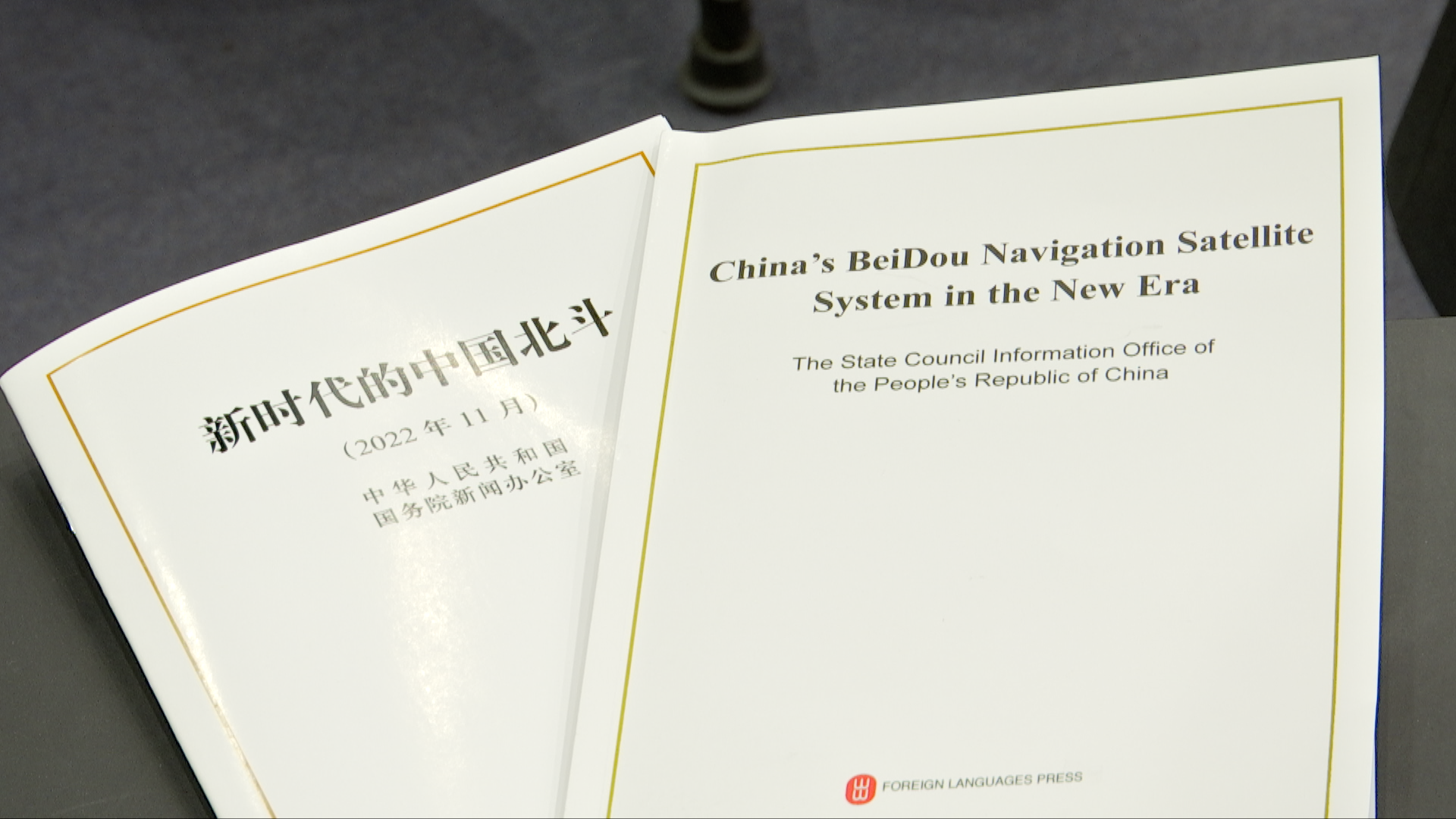02:14

The products of China's self-developed BeiDou Navigation Satellite System (BDS) are being used in over half of the countries and regions in the world, a Chinese official said on Friday.
Ran Chengqi, director general of the China Satellite Navigation Office and spokesperson of the BDS, said China has actively carried out international cooperation on the BDS and advanced its applications across the globe.
Ran made the remarks at a press conference in Beijing, during which a white paper titled "China's BeiDou Navigation Satellite System in the New Era" was released.
The white paper said that the BDS was built into a world-class navigation system. It also laid out how China plans to refine the system by improving its operation management, promoting sustainable development of BDS-based applications and upgrading its governance in the coming years.
China began to develop its own navigation satellite system in 1994. The BDS-1 entered service and began providing positioning services in China at the end of 2000. Since that, China became the third country in the world with a navigation satellite system.
The BDS-2 was completed in 2012, providing positioning services to the Asia-Pacific region. In 2020, the BDS-3 was completed and formally commissioned to provide satellite navigation services worldwide, according to the white paper.
So far, the BDS, the GPS, Russia's GlONASS and Europe's Galileo are the four major global navigation systems, with the GPS in a dominating position.

Ran Chengqi, director general of the China Satellite Navigation Office and spokesperson of the BeiDou Navigation Satellite System, speaks at a press conference in Beijing, November 4, 2022. /CFP
Ran Chengqi, director general of the China Satellite Navigation Office and spokesperson of the BeiDou Navigation Satellite System, speaks at a press conference in Beijing, November 4, 2022. /CFP
Applications of BDS on fast track
China has made continuous efforts to refine the products of the BDS, expand its application fields, improve its industry ecosystem and promote its large-scale applications, according to the white paper.
The BDS has been widely used in various industries and fields in China's socioeconomic development. It has been deeply integrated with emerging technologies such as big data, the Internet of Things (IoT) and artificial intelligence, fostering new business formats based on the BDS.
The system has also been widely applied in the transportation sector as well as daily life through smartphones and wearable devices. In 2021, 324 million Chinese smartphones supporting BDS services were exported, accounting for 94.5 percent of the country's total, according to the white paper.
Over the years, a complete BDS industrial chain consisting of chips, modules, boards and antennas has been formed in China. In 2021, the total output value of China's satellite navigation and location-based service industry reached 470 billion yuan (about 64 billion U.S. dollars).
By developing standards and norms, intellectual property rights, testing and certification, and industrial assessment in a systematic manner, China has created a sound industrial ecosystem for BDS applications with all necessary factors and a strong innovation capacity, said the white paper.
China to further upgrade BDS
China will further upgrade the technologies, functions and services of the BDS to provide smarter, more precise and secure navigation, positioning and timing services, according to the white paper.
In building a more powerful BDS, China will create its own smart and distinctive system for the operation, maintenance and management of the BDS, and gain a competitive edge in services such as short message communication, ground-based and satellite-based augmentation, and international search and rescue, said the white paper.
By steadily improving the quality and increasing the scope of its services, BDS will build the capacity to provide global decimeter-level positioning and navigation with high integrity, thereby delivering better services to users worldwide, it said.
International cooperation
China has active bilateral cooperation on the BDS and specialized cooperative approaches with the other three systems, said Ran. "For example, China has signed joint statements on operations with the GPS and GLONASS, respectively."
Ran added that the country has also carried out frequency coordination with the Galileo system to provide users with more high-quality services.
China has been active in advocating and advancing the compatibility and interoperability of different navigation satellite systems to provide users with more high-quality, diverse, secure and reliable services, said the white paper.
The international cooperation and applications of the BDS were based on the principles of openness, integration, coordination, compatibility, complementarity and sharing, it said.
The country continues to promote the international cooperation and exchanges of BDS, and is making every effort to have the system ratified by international standards organizations and standards organizations in the industrial and specialized application sectors, such as civil aviation, maritime, search and rescue, and mobile communication.
Read more: BeiDou eyes win-win cooperation with other global navigation systems
(With input from Xinhua. CGTN's Wang Mengjie also contributed to the report.)